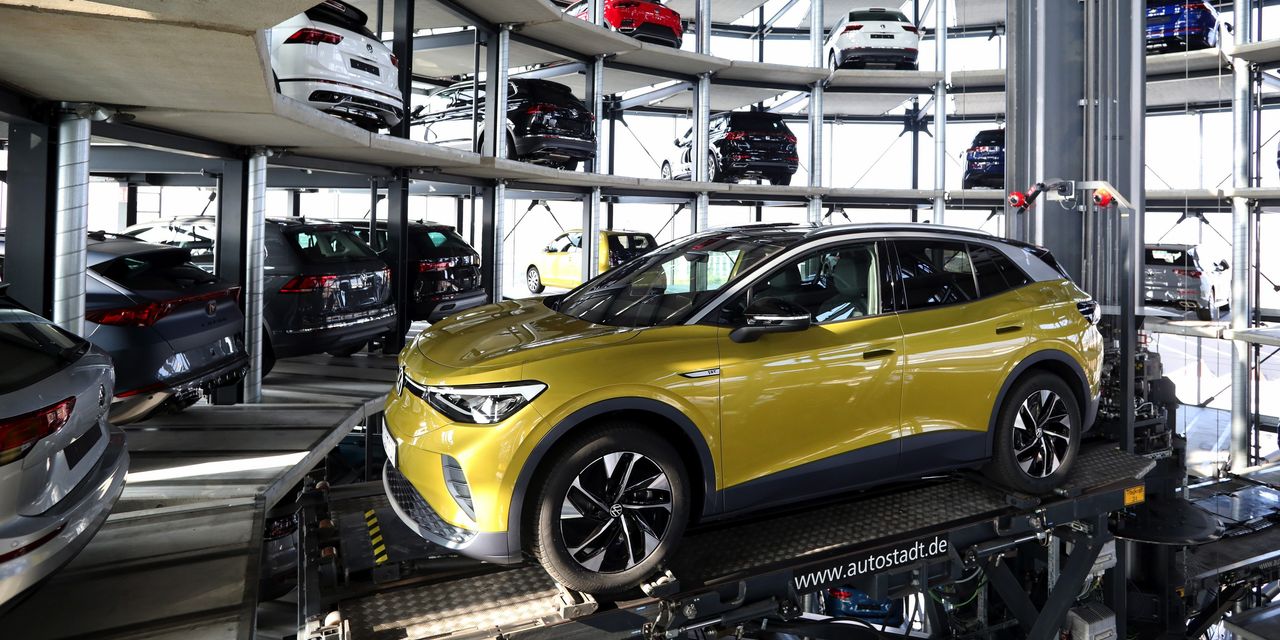Attempts to predict what the automotive industry will look like in 2030 only serve to highlight how uncertain its future really is.
On Tuesday,
Volkswagen
VOW -1.11%
updated its long-term strategy under the tagline “new auto.” Chief Executive Officer
Herbert Diess
and his team laid out how they saw the vehicle business changing this decade and how the company would use its scale as the market leader in Europe and China to take advantage.
Volkswagen expects electric vehicles to gradually replace traditional ones—so far so uncontroversial. But the market leader in Europe and China also is preparing for explosive growth in “software-enabled revenues.” Its presentation implied that this business might be almost as big as that of selling EVs by 2030.
The parallel is with smartphones:
Apple
gets much of its growth from selling services through its iPhones rather than the devices themselves. As cars become connected to the internet and updatable, in-vehicle services seem likely to proliferate. If cars ever become autonomous, freeing drivers to be passengers and even undermining the current dominant model of car ownership, demand for services could skyrocket.
Volkswagen isn’t the only one preparing to sell services.
Ford’s
strategy day in May made much of the opportunities an “always-on” relationship with its customers might bring.
General Motors
has promised an investor event later this year to explore the area.
Still, Volkswagen’s latest pitch to investors takes the thinking further than most, particularly in its anticipation of shared, driverless vehicles. The company appears to be putting real money behind its thinking. It said last month that it is considering buying a stake in Europcar, a European car-rental company with a market value including debt of roughly $5.9 billion.
The risk is that Volkswagen wastes capital on areas it deems “strategic” based on a necessarily fuzzy vision of the future. Talk of mobility has been a red flag for auto investors before. It was infamously a focus for
Jacques Nasser,
who unsuccessfully ran Ford from 1999 to 2001.
Other car makers have moved away from fleet businesses lately. GM cut its car-sharing brand Maven last year, while Ford is exploring the sale of its scooter business Spin, according to a Bloomberg report in May.
The pandemic has prompted a surge in car ownership, driving strong financial results from the traditional business model of selling cars. Volkswagen said Friday that operating profit for the first half would likely be about €11 billion, equivalent to about $13 billion, more than in all of 2020.
One of the reasons the auto industry has such a poor record of capital allocation is the need to make decisions years ahead of time. Car makers have historically coped partly by spraying money in all directions and seeing what sticks.
Volkswagen repeatedly stressed Tuesday that its vast scale would provide an advantage in the coming industry transition, but it may also be one of the reasons it has to move earlier than peers. Investors can only hope it is heading in the right direction.
Write to Stephen Wilmot at stephen.wilmot@wsj.com
Copyright ©2021 Dow Jones & Company, Inc. All Rights Reserved. 87990cbe856818d5eddac44c7b1cdeb8













































